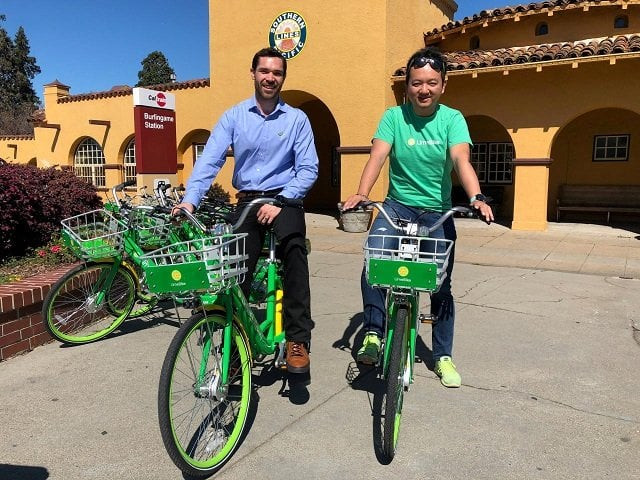Electric scooter-sharing moves into the fast lane
Big investments allowing nimble startups to reach billion-dollar valuations

FILE PHOTO: Co-founders Toby Sun (R) and Caen Contee of California-based bike sharing startup LimeBike show off their bikes at a recently-launched pilot program in Burlingame, California, U.S. March 8, 2017. PHOTO: REUTERS
Fast enough to be declared a nuisance and kicked off the streets of San Francisco and a handful of others cities to allow local officials to mull regulations. And fast enough to draw big investments to allow nimble startups to reach billion-dollar valuations.
In the US capital Washington, the electric two-wheelers have become a fixture on city bike paths, zipping along at speeds up to 25 kilometers (15 miles) per hour, sometimes veering onto sidewalks despite warnings to the contrary.
The scooters are "dockless," meaning they can be rented and left at any location, unlocked with a smartphone app which also indicates the location of the vehicles, in a model similar to new-style bike-sharing startups.
Bike-sharing companies face an uphill ride in US
Most systems charge $1 to unlock the scooter and 15 cents per minute, so a 10-minute trip would cost $2.50.
"The economics work very well" for both the consumer and the companies, said Sanjay Dastoor, founder and chief executive of Skip Scooters, one of four startups authorized by Washington to deploy up to 400 dockless scooters.
Dastoor offered no specific figures but said riders get inexpensive transportation for short-term trips and companies are able to recoup the costs of the scooter quickly.
Uber agrees to buy electric cycle-sharing startup
Just this year, dockless scooter programs have been launched in a dozen US cities and college campuses. On Friday, California-based Limebike was set to launch scooters in Paris as part of a global expansion plan.
Some say these gadgets, a tech-infused version of the child's kick-scooter, could become an elegant solution to "last mile" transportation to fill gaps in public transit and discourage automobile use.
"I've been working on last-mile transportation for the last seven years and have been looking for the magic of the right vehicle and I think this is the moment," Dastoor told AFP.
Investors have taken notice and begun pouring in cash to scooter start-ups at an unprecedented rate.


















COMMENTS
Comments are moderated and generally will be posted if they are on-topic and not abusive.
For more information, please see our Comments FAQ